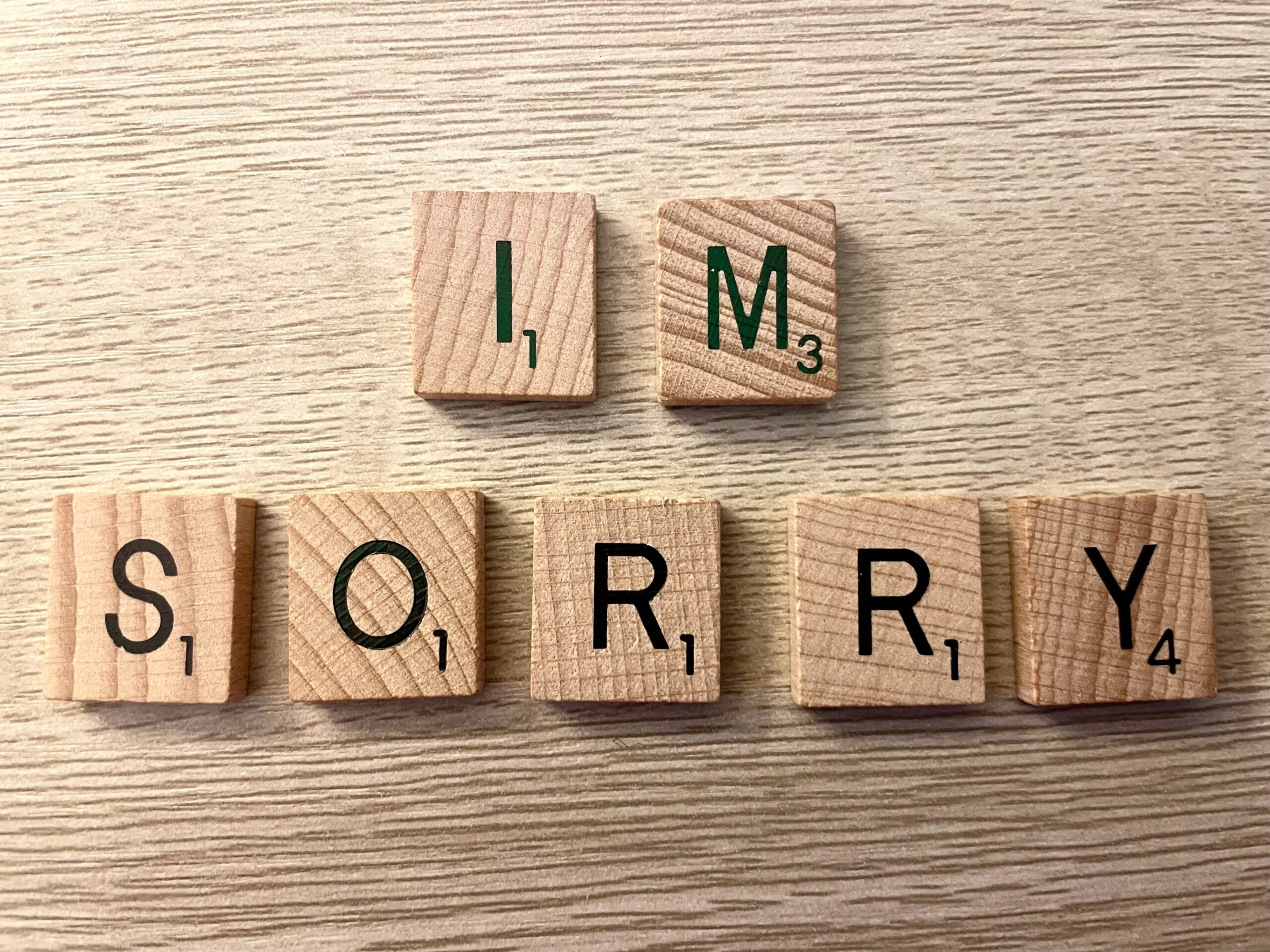In any relationship, conflict is inevitable. Sometimes couples feel their entire relationship is perpetually filled with conflict. Others may not have felt like they experienced much conflict until well after the proverbial ‘honeymoon phase’ was over. And then there are the few that might say they’ve never really fought – which, may be a red flag indicating there may not be a real connection present, or both partners are conflict-avoidant, and the real conflict is brewing just under the surface.
When working with couples one of the first things I ask is for them to tell me about the conflict they experience, and what the repair process looks like. Describing the conflict is rarely the issue – most of us are quite familiar with the issues that drag us into conflict with our partner – kids, money, sex, working long hours…the list goes on and on. Regardless of what types of conflict couples experience, or how frequently they argue, conflict is not the real issue for couples – how they repair – or don’t repair – is really the bigger concern.
Conflict in relationships can feel like the connection with a partner has been ruptured. When that rupture is felt, and no healthy repair effort is made, couples find it gets harder and harder to get out of that place. Suddenly the protective walls go up – one or both begin distancing emotionally from their partners, and resentment sets in. Left unchecked, this resentment is likely to cause serious issues in the relationship.
What is repair? A repair is simply the process of working to understand what went wrong, how both of you felt about it, and how to avoid similar conflicts in the future. It requires reaching out to your partner, responding to them in a way that validates their experience – even when you don’t agree or struggle to understand how they got to that place – and sincere apologies. Or as Dr. John Gottman defines repairs, “any statement or action – silly or otherwise – that prevents negativity from escalating out of control.”
A repair is a way to remind both of you that the relationship is important enough, the other partner is important enough, and that conflict shouldn’t be viewed as a ‘me versus you’ situation. When partners view their partner as the enemy when conflict arises, rarely are repair attempts successful. In conflict – and in repair – both partners play an active role.
What can you do to begin attempting healthy repairs during conflict?
- Recognize that timing can have a significant impact. The best repairs are when couples realize what’s happening in the moment and take steps to stop it from escalating further. Sometimes this isn’t possible, and sometimes it takes a while for couples to build up to the point where one or both are able to call it out in the moment. That’s okay – start where you’re at.
Initiating apologies as soon as possible aids in resolving the conflict quicker and allows for healing to begin instead of letting the conflict fester.
- Validate your partner’s emotions, feelings, and the story they told themselves during the conflict. This isn’t the time to nit-pick everything they say – or call out the most minute discrepancies in their recollection of the conflict. Validating your partner’s experience of the argument tells them they are important to you and how they felt during those moments matters to you. Use empathy to show you really do get how your partner feels. Statements like “I understand why you feel that way,” or “Tell me more about how ____ made you feel” demonstrate to your partner that you recognize their pain – and it matters to you.


- Do something to soften the moment. Does your partner like to be held or touched when they’re upset? Does your partner soften when you use humor? If so, try it. Make sure you’re not doing it in place of an apology or discussion, and make sure it’s appropriate for the situation. If using humor will only anger your partner further – then find something else, as the goal is to diffuse the situation and bring you both together, not further the divide.
- Ask what they need from you right now. Invite your partner to clue you into what it is that would make them feel more connected, validated, and supported by you in the moment. Maybe they need you to reiterate your apology once more, maybe they need to be held for a while, or maybe they need you to right the wrong that caused the conflict in the first place. Asking what your partner needs from you tells them once again that they matter, and their needs are important to you.
- Take responsibility for your part. A repair isn’t complete without a heartfelt apology. A good apology doesn’t place blame on the other partner – rather a good apology will take responsibility and identify the actions or behaviors that caused the wounding. Hint: A good apology will never include statements like ‘If you had only _____’ or ‘I reacted that way because you _____.’ Stick to apologizing for your part only, without placing blame back on your partner. Ideally, both partners will give a heartfelt genuine apology, and both partners will recognize what may have triggered their partner – but throwing the blame back on your partner for your behaviors will most certainly loop you back into an argument that may spiral even further instead of softening the moment and allowing healing to begin.
- Discuss what to do the next time this conflict shows up. When both partners feel the conflict has been addressed, apologies have been given, and both partners feel their concerns have been adequately addressed, have a conversation about next time. How can you avoid getting back into the same conflict again? What triggered each of you and how can you address those, so you don’t step back into the same landmine? It’s not a guarantee that you won’t ever fight over the same issue again, but repairing a conflict even once can help both of you feel more equipped to recognize it when the same thing starts happening again, and help you get out of it quicker next time.
A good repair takes effort, from both partners. Both partners have to be willing to take steps to actively move forward. And, both partners must have the goal of making their partner feel heard, respected, valued, and important to them. After all, the goal of a repair is to help couples feel connected even in conflict and to make the relationship stronger.
If you find that you are stuck in a cycle of conflict and there is no repair – or the repair attempts you and your partner have aren’t working, try these steps instead. Don’t let the lack of healthy repair attempts keep your relationship from moving forward.
Ready to invest in your relationship? Schedule a session now to begin improving your relationship!
Join one of our monthly newsletters to keep up with upcoming events, important information about MFCC, mental health and wellness tips. Choose from our general newsletter or topics specific to couples and relationships, family and parenting, or spiritual abuse and religious trauma.
We promise not to spam or pass out your information to anyone. And of course, you are always welcome to unsubscribe at any time.







